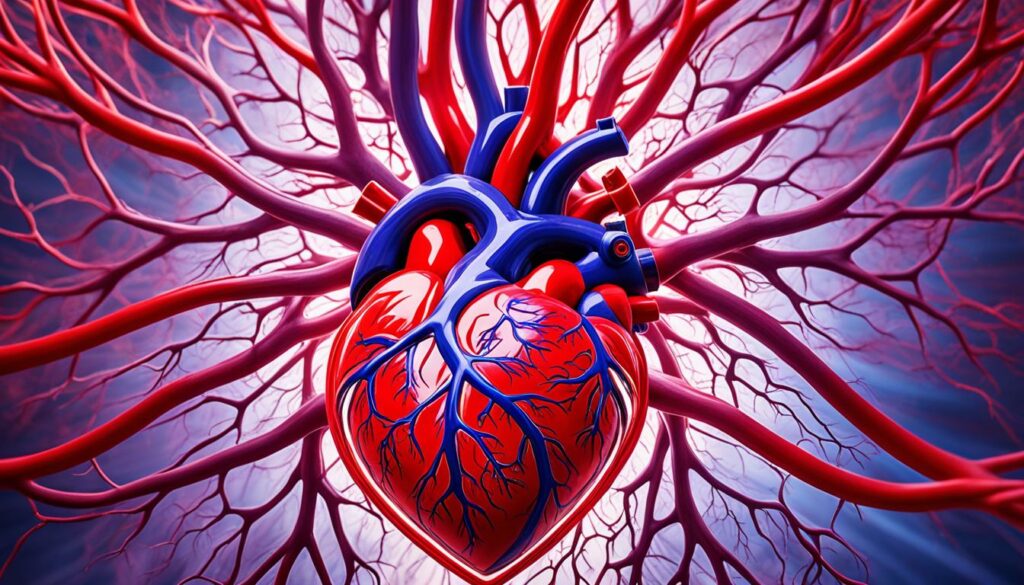Have you ever experienced a moment of pure happiness, a feeling that resonates deep within your soul? It’s those instances when time seems to stand still, and you are filled with a profound sense of contentment. Imagine if you could capture that feeling, embody it every day, and transform your life in the process.
Welcome to the world of gratitude practice. This simple yet powerful habit has the potential to unlock personal transformation, self-improvement, and inner healing. It’s a journey of self-discovery that can guide you through life changes, empower you to embrace self-empowerment, and nourish your growth mindset. Are you ready to embark on this transformative journey?
Key Takeaways:
- Gratitude practice has the power to enhance personal transformation and overall wellbeing.
- By cultivating a gratitude practice, you can experience self-improvement and inner healing.
- Practicing gratitude can help you navigate life changes and embrace self-empowerment.
- Gratitude practice nourishes a growth mindset and facilitates self-discovery.
- Embarking on a transformative journey through gratitude can bring positive change to your life.
The Benefits of Practicing Gratitude
Regularly practicing gratitude can bring about a multitude of positive effects on your overall well-being. It not only improves your mental health but also strengthens your relationships, fosters resilience, and enhances your physical health. Let’s explore the numerous benefits of incorporating gratitude into your daily life:
Improved Mental Health
By practicing gratitude, you can experience a significant reduction in symptoms of depression, anxiety, and stress. It allows you to shift your focus from negative thoughts to the positive aspects of your life, leading to a more optimistic mindset. Cultivating gratitude promotes emotional resilience, empowering you to bounce back from adversities and challenges.
Stronger Relationships
An attitude of gratitude nurtures and improves your interpersonal relationships. When you express gratitude towards others, it strengthens the bond and deepens the connection between you. By focusing on the positive aspects of your relationships, you reduce feelings of envy and materialism, creating a healthier and more fulfilling social life.
Increased Happiness and Life Satisfaction
Practicing gratitude has been strongly linked to increased happiness and greater life satisfaction. By acknowledging and appreciating the good things in your life, you cultivate a positive mindset and enhance your overall well-being. Grateful individuals tend to experience more joy and contentment in their daily lives.
Enhanced Physical Health
Gratitude not only benefits your mental state but also has a positive impact on your physical health. Research suggests that individuals who regularly practice gratitude may experience improved sleep quality, reduced inflammation, lower blood pressure, and enhanced self-esteem. Cultivating gratitude can lead to a healthier and more vibrant physical body.
“Gratitude can transform common days into thanksgivings, turn routine jobs into joy, and change ordinary opportunities into blessings.” — William Arthur Ward
Embracing gratitude as a daily practice can be a transformative journey, guiding you towards personal growth and inner peace. By fostering resilience, reducing stress, and boosting happiness, practicing gratitude empowers you to live a more fulfilling and balanced life.
The Science Behind Gratitude
Expressing gratitude can have a profound impact on your brain and overall well-being. Let’s explore the scientific reasons why gratitude is so powerful.
Boosting Neurotransmitters
When you practice gratitude, it triggers the release of dopamine and serotonin, two neurotransmitters that play crucial roles in regulating mood and improving your mental state. These chemicals can change your brain for the better, leading to increased feelings of happiness and contentment.
Reducing Cortisol Levels
Cortisol, also known as the stress hormone, is often responsible for feelings of anxiety and tension. However, practicing gratitude can help reduce cortisol levels in your body. By intentionally focusing on the positive aspects of your life, you can diminish stress and improve your overall well-being.
Release of Oxytocin
Expressing gratitude also prompts the release of oxytocin, often referred to as the “love hormone.” Oxytocin is known to promote feelings of trust and connection, and it has beneficial effects on your cardiovascular system. By releasing oxytocin, gratitude can help improve cardiac functioning, expand blood vessels, and lower blood pressure.
Practicing gratitude rewires your brain, helps you handle stress better, and reduces symptoms of depression and anxiety.
Incorporating gratitude into your daily life can reshape your brain, improve your mental health, and enhance your overall well-being. By boosting neurotransmitters, reducing cortisol levels, and releasing oxytocin, gratitude has the power to bring about positive changes in both your mind and body.
Take a moment each day to acknowledge the things you are grateful for, whether big or small. It could be as simple as appreciating a beautiful sunset, a supportive friend, or a delicious meal. Cultivating a grateful mindset can lead to long-lasting benefits for your mental and physical health.

How to Start a Daily Gratitude Practice
Starting a daily gratitude practice is simple and easy. By incorporating gratitude into your daily routine, you can experience positive changes in your mindset and overall well-being. Here are some effective methods to get started:
- Self-Appreciation: Take a moment each day to acknowledge and appreciate yourself. Make a list of five things you are proud of or grateful for about yourself. It could be a personal achievement, a positive trait, or something you did to help someone else.
- Journaling: Grab a notebook or create a gratitude journal to write down a few things you are grateful for each day. It could be as simple as a beautiful sunset, a kind gesture from a friend, or a delicious meal you enjoyed.
- Make Someone Feel Special: Expressing gratitude to others is a powerful way to foster connection and make someone feel valued. Take a moment to thank someone in person or write a heartfelt note expressing your appreciation.
- Gratitude Buddy: Find a like-minded friend or family member who is also interested in practicing gratitude. Share your daily gratitude lists or thoughts with each other. This can provide support, encouragement, and accountability in maintaining your gratitude practice.
“The expression of gratitude is like a warm ray of sunshine that brightens the lives of both the giver and the receiver.”
Starting a daily gratitude practice doesn’t require a lot of time or effort, but it can have a significant impact on your overall well-being. Whether it’s through self-appreciation, journaling, making someone feel special, or finding a gratitude buddy, find a method that resonates with you and commit to practicing gratitude each day.
The Transformative Power of Gratitude
Gratitude has the power to dramatically improve your mental health, enhancing your emotional resilience and overall well-being. By practicing gratitude regularly, you can reduce symptoms of depression, anxiety, and stress, allowing you to lead a more fulfilling life.
Expressing gratitude fosters emotional resilience, helping you navigate challenging situations with greater ease and strength. It equips you with the tools to bounce back from adversity and face life’s obstacles with a positive mindset.
But the benefits of gratitude don’t stop there. When you express gratitude, you strengthen your relationships, reducing feelings of envy and fostering a deeper sense of connection with others. By appreciating what you already have, you cultivate contentment and satisfaction, leading to increased happiness and life fulfillment.
Moreover, gratitude not only has a positive impact on your mental and emotional well-being but also on your physical health. Studies have shown that practicing gratitude can improve sleep quality, boost self-esteem, and even reduce the risk of developing certain health conditions.
Are you ready to harness the transformative power of gratitude? Start incorporating gratitude into your daily life and experience the profound positive changes it can bring.
Imagine waking up each day with an improved mental state, enhanced emotional resilience, and better relationships. By embracing gratitude, you have the opportunity to reduce envy, increase happiness, and enjoy a more fulfilling life.
Practical Gratitude Practices
Incorporating gratitude into your daily life can have a profound impact on your overall well-being. By practicing simple yet effective gratitude exercises, you can cultivate a positive mindset and experience greater happiness. Here are some practical gratitude practices to try:
- Gratitude Journaling: Keeping a gratitude journal is a powerful way to express appreciation for the good things in your life. Each day, write down three things you are grateful for. This practice helps shift your focus towards the positive aspects of your life and enhances feelings of gratitude.
- Gratitude Letters: Writing gratitude letters to loved ones allows you to express your appreciation and deepen your relationships. Take the time to reflect on why you are grateful for someone, and let them know how much they mean to you. This act of kindness can bring immense joy to both you and the recipient.
- Gratitude Jar: Create a gratitude jar by filling it with notes or small objects that represent moments of gratitude in your life. Whenever you experience something for which you are grateful, write it down on a piece of paper and place it in the jar. Over time, your gratitude jar will serve as a visual reminder of the abundance and positivity in your life.
- Gratitude Walks: Take a walk in nature and practice mindful appreciation of your surroundings. Observe the beauty of the natural world, the colors, the sounds, and the smells. As you walk, reflect on the things you are grateful for, allowing yourself to fully immerse in the present moment. Embrace the tranquility and let gratitude wash over you.
“Gratitude makes sense of our past, brings peace for today, and creates a vision for tomorrow.” – Melody Beattie
In addition to the practices mentioned above, you can explore other gratitude exercises such as gratitude meditation, creating gratitude rituals, finding a gratitude buddy, or even creating a gratitude collage. Remember, small acts of kindness and finding gratitude in challenging situations can also have a profound impact on your well-being.
Embrace the power of gratitude and watch as it transforms your outlook on life.
Seek Professional Guidance for Gratitude and Wellbeing
If you’re struggling to find gratitude or need further guidance with your gratitude practice or overall wellbeing, consider seeking professional help. Licensed therapists and clinicians can provide the professional support and expertise you need to cultivate gratitude and improve your mental health.
Professional help can offer valuable insights and techniques to help you overcome any barriers or challenges you may be facing in expressing gratitude. These experts can help you explore specific areas of your life to focus on and identify opportunities for gratitude. They can also provide mindful homework assignments to enhance your gratitude practice.
Working with a therapist or clinician is an essential part of a holistic approach to wellbeing. They can provide personalized strategies and tools to help you navigate challenges, manage stress, and cultivate gratitude for a more fulfilling life.
“Seeking professional guidance for your gratitude practice and overall mental health is a proactive step towards personal growth and wellbeing,” says Dr. Sarah Mitchell, a licensed therapist specializing in holistic approaches to mental health and wellbeing. “Professional therapists can offer tailored support to help you develop gratitude as a foundational practice for improved mental and emotional well-being.”
“Therapy has played a crucial role in transforming the lives of many individuals by providing them with the space to explore their emotions and experiences,” shares Dr. Ryan Johnson, a clinical psychologist specializing in gratitude therapy. “With professional help, individuals can learn to embrace gratitude as a powerful tool to enhance their mental health and overall well-being.”
Professional Therapy Services
Here are some common therapy services that can help you on your gratitude and wellbeing journey:
- Individual Therapy: One-on-one sessions with a qualified therapist to explore your challenges, identify areas for growth, and develop a personalized gratitude practice.
- Group Therapy: Participate in a supportive group setting with others who are also working on cultivating gratitude and improving their mental wellbeing.
- Cognitive Behavioral Therapy (CBT): A proven therapy modality that focuses on identifying and changing negative thought patterns to promote positive emotions and behaviors.
- Mindfulness-Based Therapy: Learn techniques to bring focus and awareness to the present moment, fostering gratitude and reducing stress.
- Positive Psychology: Work with professionals trained in positive psychology interventions to develop a gratitude practice and enhance overall happiness.
Remember, seeking professional help is not a sign of weakness; it’s a courageous step towards personal growth and improved wellbeing. Professional therapists and clinicians are dedicated to providing the guidance and support you need to cultivate gratitude, strengthen your mental health, and live a more fulfilling life.

Meet the BYBS Team
The BYBS team is dedicated to helping individuals overcome trauma, manage anxiety and depression, navigate life transitions, and find balance in work and personal life. Our experienced clinicians specialize in trauma therapy, mindfulness techniques, LGBTQIA support, and fostering resilience. We are passionate about providing guidance and support to individuals seeking to improve their overall wellbeing.
Our team believes in the power of gratitude and its transformative effects. We will assist you in incorporating gratitude into your daily life to enhance your mental and emotional health. Whether you are facing trauma, anxiety, depression, or are seeking guidance during significant life transitions, our clinicians can provide the support you need.
At BYBS, we understand that each individual’s journey is unique. With compassion and empathy, we will work alongside you to develop personalized strategies that promote healing, growth, and work-life balance.
“Our mission is to guide you towards a life of mindfulness, resilience, and personal fulfillment.”
Our Areas of Specialization:
- Trauma therapy
- Mindfulness techniques
- Anxiety and depression
- Life transitions
- LGBTQIA support
- Work-life balance
Our team is committed to creating a safe and inclusive space for individuals from all walks of life. We prioritize building strong therapeutic relationships and providing evidence-based interventions that promote healing and personal growth. Through our holistic approach, we aim to empower you to live a life filled with gratitude, resilience, and wellbeing.
Conclusion
Gratitude practice is a powerful tool that can lead to personal transformation and enhance overall wellbeing. By incorporating gratitude into your daily life, you can experience positive changes in your mental and emotional health, foster resilience, strengthen relationships, and boost your happiness. It also promotes a growth mindset, empowering you to embrace personal development and self-improvement.
To fully reap the benefits of gratitude practice, it is important to seek professional guidance when needed. Licensed therapists and clinicians can provide valuable support in cultivating gratitude and improving your mental health. They can help you explore specific areas of your life to express gratitude for and provide guidance to enhance your practice.
Start your gratitude journey today and unlock the potential for personal transformation. By practicing gratitude daily and seeking professional help when necessary, you can achieve sustainable happiness and create positive change in your life. Embrace the power of gratitude and enhance your wellbeing for a fulfilling and meaningful life.
